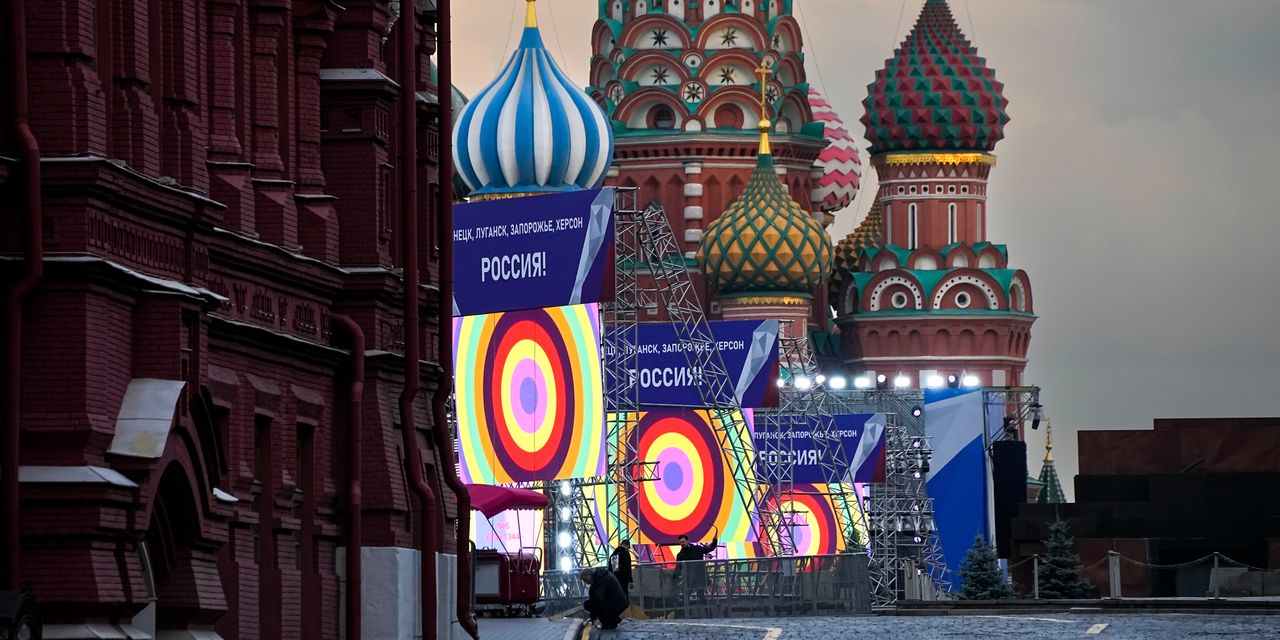A purportedly leaked Russian customs database shows around 500 shipments of Cisco gear arriving in Russia in August, months after the networking giant halted its business operations in that country.
Information extracted from the database and shared with MarketWatch appears to show that Cisco Systems Inc.
CSCO,
products entered Russia from a number of countries, with the majority of shipments coming from China. Other countries of origin include Vietnam, Switzerland, Mexico, Malaysia, Australia, Thailand and Holland, as well as the U.S., according to the data.
In the wake of Russia’s invasion of Ukraine in February, a host of major U.S. corporations, including Cisco, ended their Russian operations.
On March 3, Cisco announced that it was halting all business operations in Russia as well as Belarus “for the foreseeable future.” In a subsequent statement, released on June 23, Cisco announced its decision to begin “an orderly wind-down” of its business in those two countries.
Read: PepsiCo and other U.S. companies accused of ‘moralwashing’ in statements about Russia
The leaked database appears to show almost 500 shipments of Cisco products coming into Russia in August, ranging in value from less than $100 to tens of thousands of dollars.
A representative of the Economic Security Council of Ukraine told MarketWatch that the organization was shocked when it saw the shipments detailed in the database. “We were not expecting this type of outcome,” the representative said.
“On March 3, 2022, Cisco announced stopping all business operations in Russia and Belarus, including sales and services,” a Cisco spokesperson told MarketWatch via email. “This included discontinuing business with all Cisco partners and distributors in Russia and Belarus, which means they can no longer source products via authorized channels.
“On June 23, we announced the decision to begin an orderly wind-down of our business in Russia and Belarus,” the Cisco spokesperson added. “Cisco stands by this decision.”
The networking company highlighted the challenges posed by so-called grey markets, where products are purchased outside of a manufacturer’s authorized distribution channels. “Combatting grey market operations is a challenge facing the entire technology industry. Cisco’s Brand Protection team continues to actively counter grey market operators and their activities around the world,” the spokesperson said.
“This includes monitoring unusual booking activities and online open-source intelligence and working with customs officials to identify and thwart transactions that infringe Cisco’s intellectual property rights,” the spokesperson added.
The Economic Security Council of Ukraine was set up to develop expertise in identifying and counteracting internal and external threats to Ukraine’s economic security. Means of countering Russian aggression include strengthening the Ukrainian army and putting in place “a wide range of measures” to suppress Russia’s economy, according to the council’s website.
“Our main goal is to deprive Russia of technology and essential supplies that are necessary for its military capabilities and economic livelihood,” the council’s representative told MarketWatch. “Foreign companies should terminate cooperation with Russia, which is essentially a terrorist state,” the representative added.
Read now: Ukraine war will end in 2023, say members of Kyiv-based American Chamber of Commerce
Corporations’ stances regarding Russia have come under close scrutiny since Moscow launched its invasion of Ukraine on Feb. 24. Earlier this month, the Moral Rating Agency published a list of companies, both in the U.S. and overseas, that it accuses of “moralwashing,” or making confusing statements about their involvement with Russia.
The agency was set up after the invasion of Ukraine to examine whether companies were carrying out their promises of exiting Russia. Its research includes both U.S. and overseas firms.



